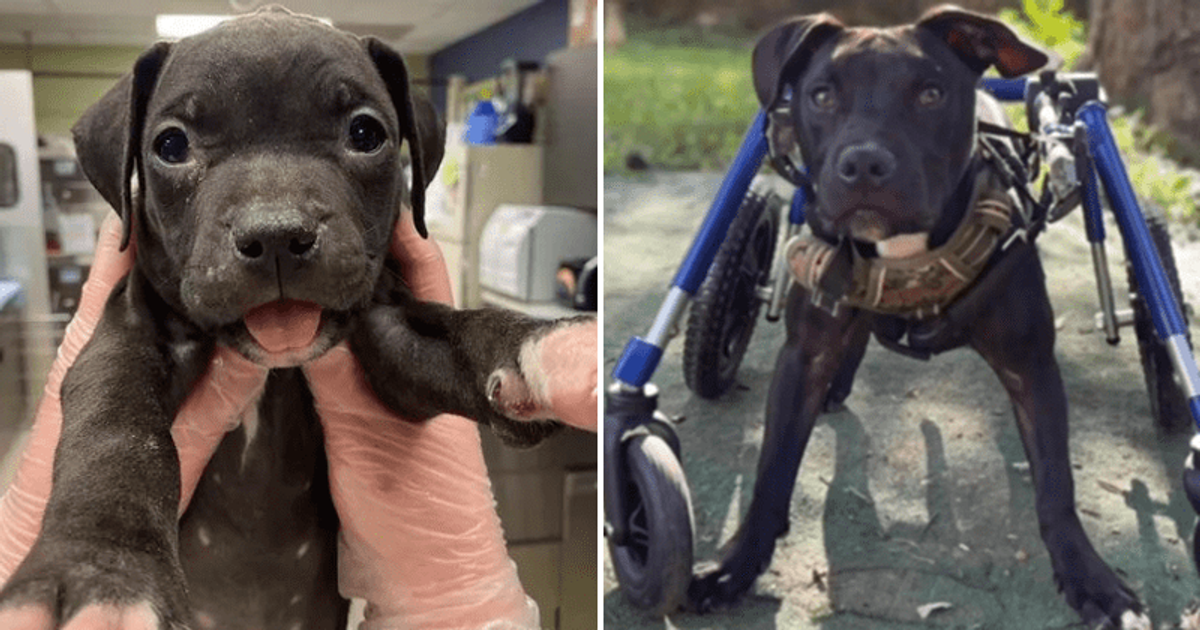Sit Down Dog Wheelchairs

Does Your Dog Have Bad Breath? It Could Be a Sign of Illness
Chronic Bad Breath Can Indicate a Health Problem
Don’t ignore your dog’s bad breath. Your dog's bad breath goes far beyond a just a terrible smell. In many cases your pet's stinky breath can be a warning sign that your dog is experiencing other health problems. This is especially important for snub nose dogs or tiny dogs as they are at an even higher risk of periodontal disease.
If you notice your pet’s breath is bad, it’s definitely time to visit the veterinarian. Although often an indication of dental disease, your dog’s smelly breath can also be a symptom of an underlying health condition. Along with regularly cleaning your dog’s teeth, your veterinarian may recommend testing your dog’s blood or urine to rule out any possible medical reasons why your dog’s breath smells.
Although canine dental disease is one of the most common pet health problems, it is also the most frequently ignored. A recent study showed that over 80% of dogs over 3 years old showed signs of untreated periodontal disease. Aside from the obvious risks of tooth decay and tooth loss, many pet parents are unaware that ignoring their dog or cat's dental health can lead to even greater health problems.
Dental and Gum Disease in Dogs
The number one cause of a dog’s bad breath is periodontal disease. Bad breath or halitosis is usually an indicator that a dog is experiencing some dental hygiene issues. Along with their terrible breath, dogs with periodontal disease and gum disease will likely show the following symptoms:
- Gums that bleed easily or show signs of inflammation
- Changing in eating behavior, such as chewing on one side of their mouth or eating slowly
- Eating less frequently
- Sensitivity around the mouth and not allowing you to touch their mouth or muzzle
- Loose or rotting teeth
Regular dental care is vitally important to your dog or cat’s overall health. Poor dental hygiene can lead to serious health problems in a pet. These health problems include an increased risk of cancer, heart disease, and diabetes.
Respiratory Problems and Bad Breath
Dog breeds prone to breathing problems can be at an increased risk for dental problems as well. Dogs with sinus issues, chronic nasal infection and even some cancerous tumors can lead to bad breath. Nasal conditions may leave amounts of pus in the nose which breaks down over time and drips down the back of the throat leading to stinky breath.
The Impact of Gastrointestinal Tract Issues and a Dog's Smelly Mouth
A dog with gastrointestinal issues often has a leaky gut which allows pathogens to travel throughout the dog’s body which then release through the dog’s mouth which causes the terrible smell. Canine disease that affects how a dog’s food is processed, such as megaesophagus can lead to terrible smelling breath in dogs. This is especially true in cases where the food pools in the body or there is an internal blockage that stops a dog’s food from processing normally.
Bad Breath Caused by Organ Problems and Canine Metabolic Disease
The way your dog’s mouth smells could indicate issues with their internal organs. Most often metabolic diseases such as diabetes and kidney failure can cause a dog’s breath to stink. Different diseases will smell differently than others:
Kidney Disease: A dog with kidney failure may have breath that smells like urine or even metallic smelling. The metallic smell is caused by the buildup of waste that is no longer being filtered properly by the kidneys.
Diabetes: A dog with diabetes may have sweet or sour smelling breath depending on where the small is coming from. Dogs with excess sugar in their bloodstream tend to smell sweet, but if they have an increase of bacteria in their body their breath may smell sour or even musty.
Liver Problems: Along with bad breath a dog with liver disease will likely also exhibit signs such as vomiting, loss of appetite, and have yellow eyes and gums. Dogs with liver disease produce high levels of metabolites in the bloodstream which cause bad breath.











